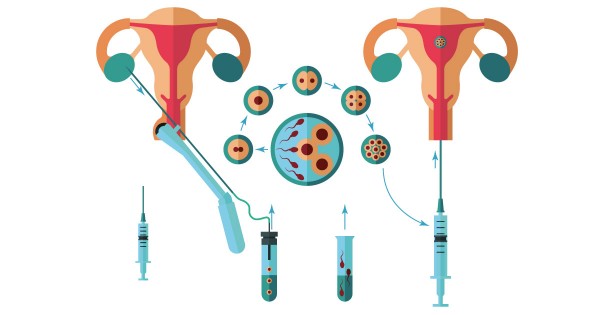You’ve tied the knot, settled down, and now you want to have kids. While some couples may find that getting pregnant happens easily, others may find that it takes a lot more effort, careful coordination, and possibly lots of frustration. Learn as much as you can about pregnancy, ovulation, and how you can find your fertile period. Work closely together with your spouse to ensure that your efforts to conceive will succeed.
Factors that affect fertility
Don’t be hesitant to go for fertility testing. The sooner you find out what the problem is, the sooner it can be treated to improve your chances of conception. While a big part of fertility rests on the woman, fertility testing should be done as a couple, especially since males account for around 30% of fertility problems.
If you are both normal healthy adults with no fertility problems, there are several factors that will affect your efforts to get pregnant which includes:
| Age | For women, the possibility of conception will start to drop by the time you hit 30. This decrease in fertility will continue as you age, with a sharper decline when you are in your 40s, and of course, zero chances once menopause hits. |
| Irregular menstrual cycles | A regular menstrual cycle simplifies finding out your ovulation cycle, which is necessary in order to find the ideal time to have sex. |
| Frequency of sex | A higher frequency of sex will increase your chances of becoming pregnant. |
| How long you have been trying to get pregnant | If you have tried unsuccessfully for a year or more, then you should seriously consider getting professional assistance. Your doctor can conduct some simple tests to learn whether it is male/female infertility, and to determine the next course of action. |
| Others | Some illnesses or medical conditions can affect your chances of conception. This includes people who are undergoing chemotherapy or those who rely on certain medications to control a health condition such as asthma, or epilepsy. Always consult your doctor on how any medications or chronic illnesses you may have will affect your chances of conception, and what can be done about it. |
Did you know?
The possibility of complications increases with age, and many studies have shown that there is a higher risk of a child being born with a birth defect (e.g. Down Syndrome, or other chromosomal abnormalities) that are directly linked to a mother’s age. This same pattern holds true for the incidence of miscarriages.
| Early 20s | Early 30s | Early 40s | |
| Down Syndrome | 1 in 1,667 | 1 in 952 | 1 in 106 |
| Chromosomal abnormality | 1 in 526 | 1 in 385 | 1 in 66 |
| Miscarriage | 12-15% | 14.7% | 25% |
Do’s and Don’ts to Boost Fertility:
Do
Get enough nutrients: Folic acid is an essential component that is required in order for your baby to develop properly, and starting a daily course of prenatal vitamins or folic acid supplements before conception will help to significantly reduce the risk of spina bifida and other neural tube defects.
Have regular sex: By consistently having sex at least two to three times a week, you will increase your chances of conceiving during your fertile period. Sometimes, just increasing the frequency of sex is enough.
Make healthy lifestyle choices. Optimise your chances of conceiving by maintaining a healthy weight, moderate physical activity level, eat a healthy diet, limit caffeine, and manage your stress. Be sure to maintain these habits as it will stand both you and your baby in good stead throughout your pregnancy.
Don’t
Take medication without your doctor’s approval: Some medications can defeat your attempts to conceive while others may not be safe for pregnant women. Always make it a point to consult your doctor before you take any type of medication.
Smoking: Smoking has numerous negative effects on your body. It ages ovaries and causes premature egg depletion in women. For men, it also causes problems with semen production and the semen itself may be damaged, thus lowering your chances of conception.
Tax your body with strenuous exercise: When it comes to physical activity, avoid going to extremes as it could backfire and impair your fertility instead.
Increase your chances of conception
The key to a successful conception is dependent on a series of events occurring in successful succession. The culmination of these events happens when a single sperm fertilises the egg in the womb. A woman is most fertile during her ovulation period, but many factors such as stress and excessive exercise can affect it.
In order to determine the best time to try for a baby, there are four simple methods that you can use, namely:
- The calendar: Find out your pattern.

- Cervical mucus: Some women will experience a change in their vaginal discharge after or during ovulation – it will either become cloudy and thick or not be present at all. Stay alert for an increase in clear, slippery vaginal secretions that are similar in appearance to raw egg whites – this usually happens just before ovulation.
- Basal body temperature: A slight increase in your basal body temperature may occur during ovulation. There will usually be a slight increase of around half a degree (0.5°C) which marks the next two to three days as your most fertile period.
- Ovulation predictor kits: Over-the-counter ovulation test kits can help you to identify when your ovulation is occurring. Be sure to follow any instructions that come with your test kit.
When to get professional help
Most healthy couples can usually expect to conceive within a year of trying but if you have been trying without success, it may be time for you to get a professional opinion. Just remember that while infertility can affect both men and women, treatments are available, so don’t be afraid to make an appointment with your doctor.
An educational collaboration with Obstetrical and Gynaecological Society of Malaysia.







Comments